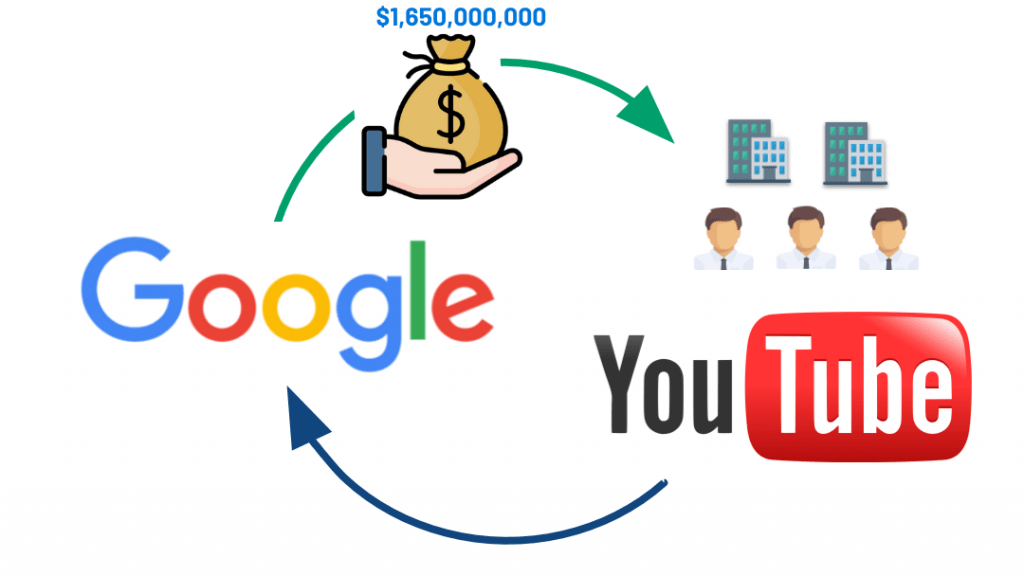A Comprehensive Guide To The Platform's Ownership And History
YouTube, the world's leading video-sharing platform, has transformed the way we consume content. Since its inception in 2005, YouTube has become a cornerstone of digital entertainment, education, and social interaction. Understanding who owns YouTube and the journey it has undergone can provide valuable insights into its operations and influence on the media landscape.
In this article, we will explore the ownership of YouTube, its history, and the impact it has had on creators and viewers alike. We will also delve into the significant changes in ownership and the implications of these changes for the platform's future. With the rise of digital content consumption, knowing who owns YouTube is crucial for anyone interested in the platform's role in the media ecosystem.
As we navigate through the intricacies of YouTube's ownership, we will present factual information, data, and statistics that highlight its growth and significance. Our goal is to create an informative resource that not only answers the question, "Who owns YouTube?" but also examines the broader context of its impact on society.
Table of Contents
The History of YouTube
YouTube was founded in February 2005 by three former PayPal employees: Chad Hurley, Steve Chen, and Jawed Karim. The platform was created to allow users to upload, share, and view videos in a simple and user-friendly way. It quickly gained popularity, becoming one of the fastest-growing websites on the internet.
In November 2005, YouTube launched its first television commercial, which significantly boosted its visibility and user engagement. By July 2006, the platform was attracting over 100 million video views per day, making it a household name.
Key Milestones in YouTube's History
- 2005: YouTube founded.
- 2006: YouTube gains significant user engagement with over 100 million daily views.
- 2006: YouTube is acquired by Google for $1.65 billion in stock.
- 2010: YouTube becomes the first video-sharing platform to surpass 1 billion views per day.
Acquisition by Google
In November 2006, Google announced its acquisition of YouTube for approximately $1.65 billion in stock. This acquisition marked a significant turning point for both companies, allowing Google to enter the online video market and giving YouTube access to Google's resources and infrastructure.
The acquisition raised questions about the future of YouTube and its mission. Many wondered whether Google would alter the platform's user-centric model or impose stricter regulations on content. However, Google has largely allowed YouTube to operate independently while implementing various monetization strategies, including the introduction of ads and YouTube Premium.
The Benefits of Google's Acquisition
- Enhanced infrastructure and resources for video hosting and streaming.
- Access to Google's advertising network, increasing revenue opportunities for creators.
- Improved search functionality, making it easier for users to find content.
Current Ownership Structure
As of now, YouTube remains a subsidiary of Google, which is part of Alphabet Inc. This corporate structure means that while YouTube operates as an independent entity, it is ultimately owned and managed by Alphabet, which oversees various businesses related to technology and digital content.
Alphabet's ownership of YouTube has allowed the platform to innovate continuously and expand its offerings, including live streaming, YouTube Originals, and augmented reality features. YouTube has also established partnerships with various media companies and content creators, further enhancing its content library.
Key Figures in YouTube's Management
- CEO: Susan Wojcicki
- Head of Product: Neal Mohan
- Chief Business Officer: Robert Kyncl
Impact on Content Creators
YouTube's ownership by Google has had a profound impact on content creators. The platform has democratized content creation, allowing anyone with a camera and an internet connection to share their videos and potentially reach millions of viewers.
However, this democratization comes with challenges. Content creators must navigate YouTube's policies and algorithms, which can affect their visibility and monetization opportunities. The introduction of the YouTube Partner Program has enabled creators to earn money through ads, but the criteria for participation have evolved, leading to increased competition among creators.
Challenges Faced by Content Creators
- Algorithm changes impacting video visibility.
- Increased competition for ad revenue.
- Adpocalypse: fluctuations in ad revenue due to policy changes.
Future Implications of Ownership
As YouTube continues to evolve under the ownership of Google, its future implications for content creation and media consumption are significant. The platform is expected to further integrate with Google's services, such as Google Ads and Google Play, enhancing its monetization capabilities.
Additionally, YouTube's focus on original content and partnerships with creators may lead to a shift in the way users consume content. The rise of YouTube Premium and the introduction of subscription-based models indicate a trend toward diversifying revenue streams for both YouTube and its creators.
Trends to Watch in YouTube's Future
- Increased focus on live streaming and real-time engagement.
- Expansion of YouTube Premium and subscription content.
- Enhanced integration with Google's AI and machine learning technologies.
YouTube by the Numbers
To understand the magnitude of YouTube's influence, consider the following statistics:
- Over 2 billion logged-in monthly users.
- Over 1 billion hours of video are watched daily.
- More than 500 hours of video are uploaded every minute.
Conclusion
In conclusion, YouTube is owned by Google, which is part of Alphabet Inc. This ownership has played a crucial role in shaping the platform's growth and its impact on content creators and viewers. Understanding who owns YouTube provides valuable context for navigating the evolving landscape of digital content consumption.
We encourage you to share your thoughts in the comments below and explore more articles on our site to stay informed about the latest trends in the digital world.
References
For further reading and verification of the information presented in this article, you can refer to the following sources:
Article Recommendations



ncG1vNJzZmilqZu8rbXAZ5qopV%2BWtLOxwKylnq%2BjaXy4tM5mprCmo2LGsMHTrpmeZpipuq0%3D